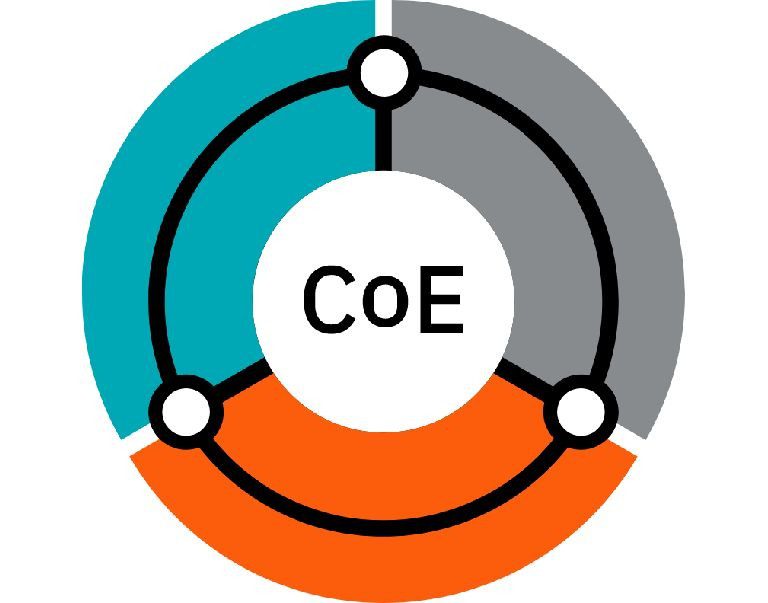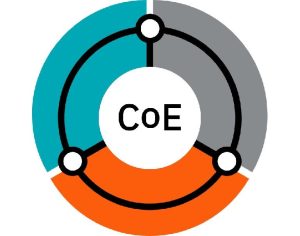Education Loans in Nepal: Your Path to Academic Success
Intro: Education Loans in Nepal
Education Loans in Nepal: Education Loans in Nepal have become an essential financial tool for students seeking higher education. With the rising costs of tuition fees, textbooks, and living expenses, many students are turning to education loans to help fund their academic pursuits.
In this blog post, we will explore the various aspects of education loans in Nepal, from understanding the loan process to government policies and support programs. Whether you are a student planning to pursue higher education or a parent looking for financial assistance for your child’s education, education loans in Nepal can be your path to academic success.

Understanding Education Loans in Nepal
In Nepal, education loans are specifically designed financial aids available through a variety of sources including banks, non-banking financial institutions, and certain governmental bodies. These loans are engineered to bridge the financial gap students often face when pursuing higher education.
By covering a comprehensive range of expenses such as tuition, books, accommodation, and sometimes even travel for studies abroad, these loans provide a lifeline to those aspiring for academic achievements at various levels. Eligibility for these loans hinges on a set of criteria established by the lenders. Typically, these criteria revolve around the student’s academic accomplishments, enrollment in a recognized institution, and the financial status of the student or their guardians.
The process of securing an education loan involves a detailed application where students are required to furnish proof of their academic records, admission confirmations, and financial need, among other documents. This meticulous documentation is vital in assessing the student’s eligibility and the loan amount. It’s worth noting that education loans are not one-size-fits-all; they are tailored to meet the diverse needs of students enrolling in different fields of study, both within Nepal and internationally.
This tailored approach ensures that students are not only able to access higher education but are also positioned to manage the repayment effectively, paving the way for their future success without the burden of unmanageable debt.
Also visit:-
How to Apply for Education Loans in Nepal
Embarking on the application process for an education loan in Nepal requires a methodical approach, beginning with a thorough review of the eligibility criteria specified by the lender. These criteria encompass a range of qualifications, including but not limited to, a student’s academic achievements, acceptance into a recognized institution of higher learning, and the financial standing of the student’s family. The initial step involves gathering the necessary documentation that supports the student’s application. Key documents typically include, but are not limited to, detailed academic records, official admission letters from educational institutions, and verifiable income statements from the family.
Once the requisite documentation is in order, the next step is to complete the application form provided by the lending institution. This form is a comprehensive document that requests information about the student’s academic history, the course of study, and detailed financial information. Accuracy and thoroughness in filling out this form cannot be overstated, as it forms the basis of the lender’s assessment of the loan application.
Following the submission of the application form and all pertinent documents, the student will likely be invited for an interview. This interview gives the lending institution a chance to clarify any questions they may have about the application and for the student to present their case for the loan more personally.
It’s advisable for students to approach this process with patience and attentiveness, ensuring that every step is completed accurately and completely. Engaging directly with the lending institution to clarify any ambiguities or to seek advice on how to strengthen their application can also be beneficial. This proactive approach can streamline the application process and improve the chances of a favorable outcome.
Interest Rates and Repayment Plans
When embarking on the journey of securing an education loan in Nepal, a critical component to consider is the structure of interest rates and the options for repayment. Interest rates for education loans typically offer more favorable conditions compared to other loan types, reflecting a commitment to making higher education more accessible. These rates can vary widely among different financial institutions, so it is prudent for borrowers to conduct comprehensive comparisons to ensure they find the most advantageous rate.
The repayment of education loans is designed with the student’s future financial stability in mind. Many lenders provide a grace period after graduation before repayments begin, acknowledging the time it might take for graduates to secure employment. Additionally, the repayment terms can be flexible, with options that can be adjusted according to the borrower’s financial situation after they have entered the workforce. For instance, some plans may allow for lower monthly payments that gradually increase as the borrower’s earning potential grows.
Lenders may also offer the possibility of loan consolidation, which can simplify repayment by combining several loans into a single one with a potentially lower interest rate. This option can be particularly beneficial for students who have borrowed multiple loans to cover their educational expenses over several years.
Navigating the specifics of interest rates and repayment plans requires careful consideration and, ideally, consultation with financial advisors or the lending institutions themselves. By thoroughly understanding these aspects, students can tailor their loan in a way that supports their academic ambitions while ensuring their financial health remains intact as they transition from their studies into their professional lives.
Also visit:-
Government Policies and Support Programs
The Nepalese government has undertaken various initiatives to facilitate students’ access to education loans, reflecting a commitment to fostering higher education opportunities for individuals from diverse economic backgrounds. Key among these initiatives are subsidy programs designed to reduce the financial burden of loans on students. Subsidies may be offered on interest rates, making loans more affordable over their repayment period. Additionally, the government sometimes provides guarantees for education loans, which can be particularly beneficial for students who might otherwise struggle to secure loans due to the lack of collateral or a guarantor.
Another critical aspect of government intervention is the provision of direct financial assistance or grants to students who demonstrate significant financial need or academic excellence. This assistance aims to ensure that talented students are not hindered by financial constraints from pursuing higher education. To take advantage of these government support programs, students and their families are encouraged to engage with both their educational institutions and designated government agencies. These entities can offer guidance on the application process and eligibility criteria for the various support schemes available.
By actively seeking out this information and understanding the range of support options provided by the government, students can better navigate the financial landscape of pursuing higher education in Nepal. These policies and programs are integral to the government’s broader educational strategy, aimed at increasing access to higher education and supporting the academic aspirations of Nepalese students.
Success Stories: Transforming Lives Through Education Loans
The impact of education loans on students in Nepal is profound, offering a glimpse into the transformative power of financial support for higher education. Countless students have leveraged these loans to unlock opportunities that seemed beyond reach. Stories abound of individuals who, with the help of education loans, have ventured into fields like technology, healthcare, and environmental science, areas critical to Nepal’s development and global competitiveness.
One such example is a young woman from a small village who, through an education loan, completed her studies in agricultural science, returning to her community to implement sustainable farming techniques that have increased yields and improved livelihoods. Another narrative features a student who pursued engineering with the aid of an education loan and is now part of a team developing renewable energy solutions, contributing to Nepal’s energy sustainability goals.
These stories highlight not just the individual achievements but also the ripple effect of education loans in fostering innovation, driving social change, and uplifting communities. Through financial empowerment, students are not only achieving their personal academic and career aspirations but are also becoming agents of change, underscoring the significant role of education loans in shaping futures.
Also visit:-
Frequently Asked Questions (FAQs) About Education Loans in Nepal
Navigating the landscape of education loans in Nepal comes with a set of questions, and we’re here to provide clarity. For international students pondering their eligibility for education loans, it’s essential to know that while it’s possible, specific documentation, including a student visa and passport, is required. When it comes to the maximum loan amount, this figure can vary significantly among financial institutions, and it largely depends on the student’s or their guardian’s financial situation.
Therefore, direct communication with the lending institution is key to understanding the limits and requirements. As for the application processing time, this too differs from one lender to another. It’s influenced by factors such as the completeness of the application and the institution’s evaluation process.
To ensure a smoother and quicker process, applicants should aim to submit their applications well in advance and maintain regular contact with the lender for updates. By addressing these common inquiries, we hope to make the path towards securing an education loan in Nepal clearer and more accessible for students and their families.
Education Loans in Nepal: Which Bank is Best for Education Loans in Nepal?
Introduction to Education Loans in Nepal
Education is a fundamental right and a crucial stepping stone towards personal and professional success. In Nepal, where access to quality education is often limited by financial constraints, education loans play a vital role in enabling students to pursue higher education both domestically and internationally. This article explores the landscape of education loans in Nepal, focusing on the best banks offering such financial assistance to aspiring students.
Understanding Education Loans
Education loans, also known as student loans or study loans, are financial instruments designed to help students cover the costs associated with higher education. These costs may include tuition fees, accommodation expenses, textbooks, travel, and other related expenses. In return for the loan, students agree to repay the borrowed amount along with any accrued interest after completing their education and securing gainful employment.
Importance of Education Loans in Nepal
In Nepal, where the cost of higher education, especially at reputable institutions, can be significant, education loans play a crucial role in making education accessible to a broader segment of the population. For many students and their families, education loans represent a lifeline, enabling them to pursue academic opportunities that would otherwise be financially out of reach.
Criteria for Selecting the Best Bank for Education Loans
When considering which bank to approach for an education loan in Nepal, several factors come into play. These include:
- Interest Rates: The interest rates offered by banks on education loans can vary significantly. Lower interest rates translate to lower overall borrowing costs for students, making them a key consideration when selecting a bank.
- Loan Amount and Repayment Terms: Banks may have different maximum loan amounts and repayment terms. Students should assess their financial needs and choose a bank that offers loan amounts and repayment terms that align with their requirements and financial capabilities.
- Processing Time: Timely disbursal of funds is essential, especially for students who need to meet admission deadlines or make upfront payments for tuition and other expenses. Banks with efficient and streamlined loan processing procedures are often preferred by students.
- Collateral Requirements: Some banks may require collateral or guarantors for education loans, while others offer unsecured loans based on the student’s academic performance and future earning potential. Understanding the collateral requirements is crucial for students and their families.
- Customer Service and Support: Access to responsive customer service and support can make the loan application and repayment process smoother and more convenient for students. Banks that prioritize customer satisfaction and provide comprehensive support are often preferred choices.
- Additional Benefits and Features: Some banks may offer additional benefits or features with their education loans, such as flexible repayment options, grace periods, or discounts for prompt repayment. Students should evaluate these additional perks when comparing loan offers.
Best Banks for Education Loans in Nepal
While several banks in Nepal offer education loans, some stand out for their competitive interest rates, favorable loan terms, and excellent customer service. The following banks are widely regarded as among the best options for education loans in Nepal:
- Nepal Investment Bank Limited (NIBL): NIBL is one of the leading commercial banks in Nepal, known for its diverse range of financial products and services. The bank offers education loans at competitive interest rates with flexible repayment options, making it a popular choice among students.
- Himalayan Bank Limited (HBL): HBL is another prominent bank in Nepal that provides education loans to aspiring students. With attractive interest rates, quick loan processing, and personalized customer service, HBL is favored by many students seeking financial assistance for their education.
- Everest Bank Limited (EBL): EBL offers education loans to students pursuing higher education in Nepal and abroad. The bank’s education loan scheme features competitive interest rates, generous loan amounts, and convenient repayment terms, making it a preferred choice for students and their families.
- Nabil Bank Limited: Nabil Bank is renowned for its commitment to providing innovative financial solutions to its customers. The bank’s education loan scheme offers competitive interest rates, hassle-free application procedures, and dedicated support throughout the loan tenure, making it a top choice for students.
- Siddhartha Bank Limited: Siddhartha Bank offers education loans to deserving students to pursue their academic aspirations without financial constraints. With attractive interest rates, flexible repayment options, and minimal documentation requirements, Siddhartha Bank is a preferred partner for students seeking education financing.
- NIC Asia Bank Limited: NIC Asia Bank provides education loans to students aspiring to pursue higher education both domestically and internationally. The bank’s education loan scheme offers competitive interest rates, quick approval processes, and customized solutions tailored to the needs of students and their families.
Conclusion: Education Loans in Nepal
Education loans play a crucial role in facilitating access to higher education for students in Nepal. By partnering with reputable banks that offer competitive interest rates, favorable loan terms, and excellent customer service, students can fulfill their academic aspirations without being burdened by financial constraints. When exploring education loan options, students should carefully evaluate the offerings of different banks and choose the one that best meets their needs and preferences. With the right financial support in place, aspiring students can embark on their educational journey with confidence and determination.

FAQs about education loans in Nepal:
- What is an education loan?
– An education loan is a type of financial assistance provided by banks or financial institutions to students to cover the cost of higher education, including tuition fees, accommodation, books, and other related expenses.
- Who is eligible to apply for an education loan in Nepal?
– Nepali citizens pursuing higher education in Nepal or abroad, including undergraduate, postgraduate, and professional courses, are eligible to apply for education loans. Some banks may have specific eligibility criteria based on academic performance, course selection, and other factors.
- What are the benefits of taking an education loan?
– Education loans enable students to pursue their academic aspirations without facing immediate financial constraints. They offer the flexibility to repay the borrowed amount after completing education and securing gainful employment.
- What expenses can be covered by an education loan?
– Education loans can cover various expenses related to higher education, including tuition fees, examination fees, hostel fees, cost of study materials, travel expenses, and other academic-related costs.
- Do education loans require collateral in Nepal?
– It depends on the bank and the loan amount. While some banks may require collateral or guarantors for larger loan amounts, others offer unsecured loans based on the student’s academic performance and future earning potential.
- What is the interest rate charged on education loans in Nepal?
– Interest rates on education loans in Nepal vary from bank to bank and may depend on factors such as loan amount, repayment term, and the applicant’s creditworthiness. Typically, interest rates range from around 8% to 14% per annum.
- How much loan amount can I avail for my education?
– The maximum loan amount that can be availed for education varies from bank to bank and may depend on factors such as the course of study, institution reputation, and the applicant’s financial background. Generally, banks offer loans ranging from NPR 500,000 to NPR 5,000,000 or more.
- What is the repayment period for education loans in Nepal?
– The repayment period for education loans in Nepal varies but typically ranges from 5 to 15 years, depending on the loan amount and the bank’s policies. Some banks may offer flexible repayment options to accommodate the borrower’s financial situation.
- Are there any tax benefits available on education loans in Nepal?
– Yes, borrowers may be eligible for tax benefits on the interest paid on education loans under certain conditions as per the prevailing tax laws in Nepal. It’s advisable to consult a tax expert or financial advisor for detailed information on tax benefits.
- Can I prepay my education loan?
– Yes, most banks allow borrowers to prepay their education loans either partially or in full without any prepayment penalty. Prepayment of the loan can help reduce the total interest burden and shorten the loan tenure.
- What documents are required to apply for an education loan in Nepal?
– The documents required for an education loan application may vary from bank to bank but typically include proof of identity, proof of address, admission letter from the educational institution, academic records, income proof of parents/guardians, and collateral documents if applicable.
- Is there an age limit for applying for an education loan in Nepal?
– Yes, most banks have a minimum and maximum age limit for education loan applicants. Generally, applicants should be at least 18 years old and not more than 35 to 40 years old at the time of loan application.
- Can I apply for an education loan if I already have a scholarship?
– Yes, you can still apply for an education loan even if you have a scholarship. The loan amount can cover the remaining expenses not covered by the scholarship, such as living expenses, travel costs, or additional fees.
- What happens if I fail to repay my education loan?
– Failing to repay an education loan can have serious consequences, including damage to your credit score, legal action by the bank, seizure of collateral (if applicable), and difficulty obtaining loans or credit in the future. It’s essential to communicate with the bank if facing difficulties in repaying the loan and explore options for restructuring or deferring payments.
- Can I apply for an education loan for studying abroad?
– Yes, many banks in Nepal offer education loans for students pursuing higher education abroad. However, the loan amount, interest rates, and other terms may vary for international studies compared to domestic studies.
- Do I need a co-borrower for an education loan in Nepal?
– It depends on the bank’s policies and the applicant’s financial background. Some banks may require a co-borrower or guarantor, such as a parent or guardian, especially for larger loan amounts or unsecured loans.
- How long does it take to process an education loan application?
– The processing time for an education loan application varies from bank to bank and depends on factors such as documentation completeness, verification procedures, and loan approval processes. Typically, it may take anywhere from a few days to a few weeks for the loan to be processed and disbursed.
- Can I use an education loan to study any course or program?
– Education loans can generally be used to fund any recognized course or program offered by accredited educational institutions, both in Nepal and abroad. However, some banks may have restrictions on certain courses or institutions.
- What is the difference between a subsidized and unsubsidized education loan?
– Subsidized education loans are those where the government or another entity pays the interest on the loan while the student is in school, during the grace period, and sometimes during deferment periods. Unsubsidized loans, on the other hand, accrue interest that the borrower is responsible for paying.
- Can I apply for multiple education loans simultaneously?
– Yes, you can apply for multiple education loans simultaneously from different banks or financial institutions. However, it’s essential to consider the total loan amount, repayment obligations, and your ability to manage multiple loans effectively.
- What are the penalties for late payments on education loans?
– Penalties for late payments on education loans may include late fees, increased interest rates, negative impacts on credit score, and legal action by the bank. It’s crucial to make timely payments to avoid such penalties and maintain a good repayment record.
- Can I change my repayment plan after taking an education loan?
– Some banks may offer options to modify the repayment plan of an education loan, such as extending the repayment period, restructuring the loan, or switching between fixed and variable interest rates. However, such changes may be subject to bank approval and additional terms.
- Is there a grace period before I start repaying my education loan?
– Yes, many banks offer a grace period, typically ranging from 6 to 12 months after the completion of the course or graduation, before the repayment of the education loan begins. During this period, no payments are required, and interest may or may not accrue, depending on the loan terms.
- Can I avail of an education loan for distance education or online courses?
– Yes, some banks may offer education loans for distance education or online
courses offered by recognized institutions. However, eligibility criteria and loan terms may vary, so it’s essential to check with the bank before applying.
- Do education loans cover living expenses during the study period?
– Yes, education loans typically cover living expenses such as accommodation, food, transportation, and other essential expenses during the study period, in addition to tuition fees and other academic-related costs.
- Can I avail of an education loan for vocational or skill development courses?
– Yes, many banks offer education loans for vocational or skill development courses recognized by relevant authorities. However, loan terms and eligibility criteria may differ from those for traditional academic programs.
- What is the procedure for applying for an education loan in Nepal?
– The procedure for applying for an education loan in Nepal involves submitting a duly filled loan application form along with the required documents to the bank or financial institution. The bank will then assess the application, conduct necessary verifications, and decide on the loan approval.
- Can I transfer my education loan from one bank to another?
– Yes, in some cases, borrowers may be able to transfer their education loan from one bank to another through a process known as loan refinancing or loan takeover. However, such transfers are subject to the approval of the new bank and may involve additional paperwork and formalities.
- What is the role of the educational institution in the education loan process?
– The educational institution plays a vital role in the education loan process by providing necessary documents such as admission letters, fee structure, academic records, and other relevant information to the bank. Additionally, the institution may certify the student’s enrollment status and academic progress to the bank as required.
- How can I repay my education loan after completing my studies?
– Education loans can be repaid through various channels, including online payments, automatic deductions from bank accounts, post-dated cheques, or cash payments at designated bank branches. Borrowers should follow the repayment instructions provided by the bank and ensure timely payments to avoid penalties.
Education Loans in Nepal with Education Tree Global: Always remember Education Tree Global to know about Education Loans in Nepal.

 Menu
Menu


















